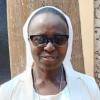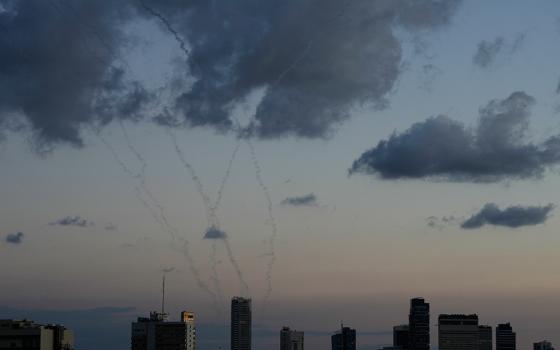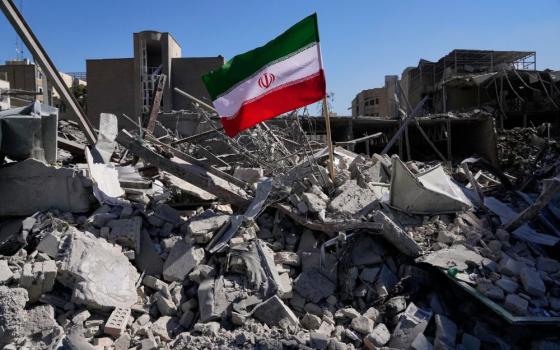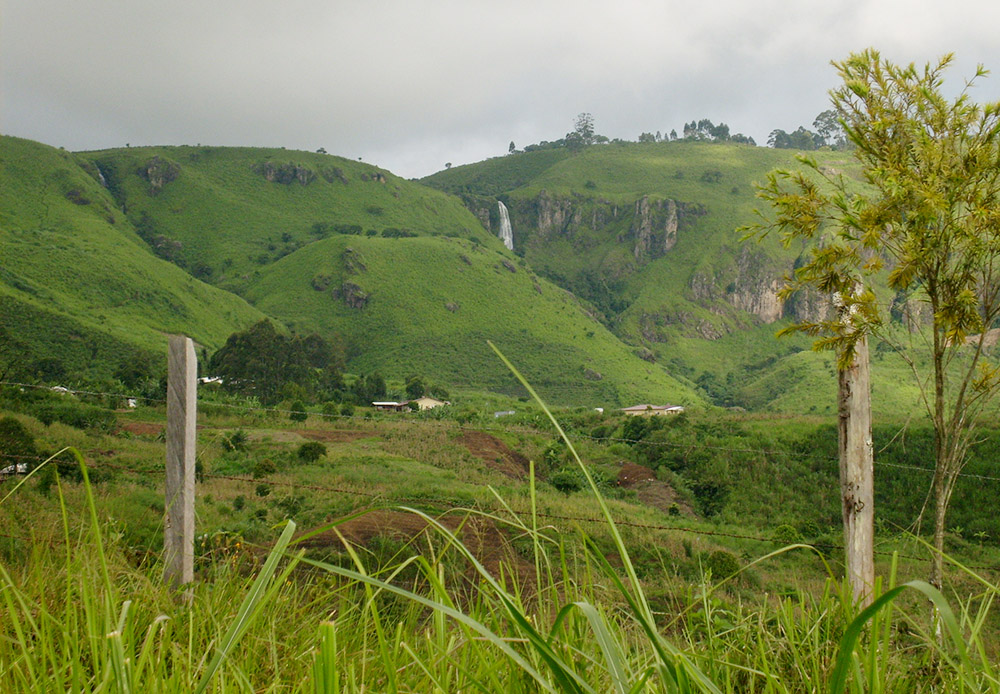
View of a landscape in the Northwest region of Cameroon (Wikimedia Commons/Trees ForTheFuture)
Cameroon has been suffering from civil war for the past four years and there seems little hope that it will end soon. In the meantime, we Holy Union Sisters are trying our best to serve the people of the Northwest region of the country.
Specifically, we have two medical centers in Ndop, the Ngoketunjia Division. The area is a beautiful grasslands plain overlooked by the Ngoketunjia mountains. The most populous tribe in the area are the Fulani, and most practice Islam. We went there when requested by the local bishop because there were serious health issues that needed addressing.
Although we serve people coming from across the district, our particular village — Baba 1 — has a population of about 35,000 people. Baba 1 is one of 13 villages of the district; each village is called a "fondom" and has its own language, traditions, and traditional authority called a fon.
Our congregation came to French-speaking Cameroon in 1931 from Belgium and the United States to work with the very poor. We are fortunate to have many vocations from Cameroon.
Over the years, as our numbers increased, we expanded into six regions of the country. In each of these, we are committed to justice through education, health care, social services, pastoral care and agricultural development. Our charism calls us to live with all people in holy union with the hearts of Jesus and Mary.
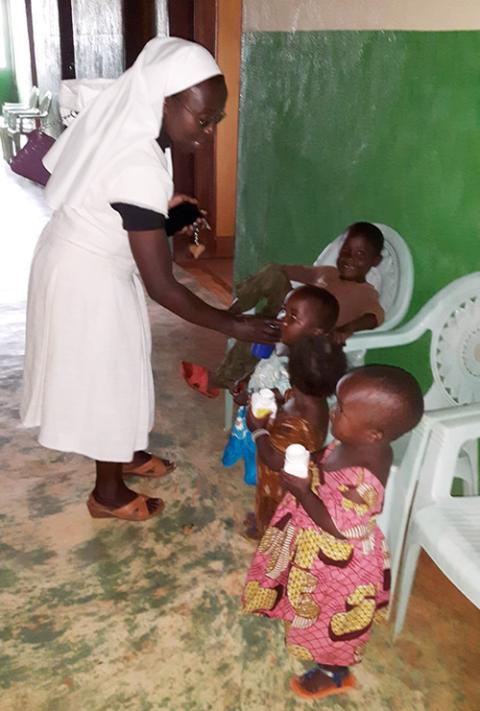
Holy Union Sr. Josephine Nko Ndindi works with children in the hospital at Baba 1, Cameroon. (Courtesy of Josephine Nko Ndindi)
As soon as we arrived in Ndop, we noticed that the most challenging health issues were malnutrition and anemia. From the beginning of our work, we consistently registered 40 to 50 patients a month in need of blood transfusions; the majority of these were anemic children. It was clear that health education was desperately needed.
After I spent some time investigating who was bringing their children for care, I decided to organize a meeting of the women who came often, and discovered that most were widows whose husbands had died of HIV/AIDS or were single/unwed mothers. A few had husbands but could not depend on them for assistance. The number of single mothers was high because of the practice of polygamy where young women are married off very young — at age 14 or 15 — and then often neglected by their husbands.
These mothers were bringing their children to us suffering from anemic crises at all hours of the day and night, and although during the day we could find blood donors, it was not possible in the middle of the night. We desperately needed a blood bank.
Through donations from friends of the congregation in Europe and the United States, and with the help of Dr. Thomas Krahn from the U.S., we were able not only to set up the blood bank but also to organize a nutrition program for families.
One donor from the U.S. faithfully sends $1,000 each year, which provides food for 30 children each month. Other donors assist with the other 30-50 children who arrive at our doors.
The women — under the leadership of Madam Ernestine — were invited to regular meetings for education in food production and hygiene, which we sisters followed up with weekly home visits. On these visits, we frequently discovered that cooked foods were left uncovered, and that toilet hygiene — including lack of hand-washing afterward — was neglected, all contributing to the number of children suffering from diarrhea and worms.
The primary food the women were feeding the children was the traditional corn polenta called fufu, or cassava, a root that is pounded into meal. For most families, these carbohydrates are usually eaten with fish and vegetables, but for these women, fish protein is too expensive, as are vegetables. Something needed to be done to address this situation.
Advertisement
We sisters worked with the women to plant a shared vegetable garden on a small piece of land, about a third of an acre, donated by one of the villagers. With the assistance of $3,000 from Sisters of Charity in the U.S., we hired technicians to train the women in agricultural practices. Hoes, cutlasses, rain boots and other equipment were given to them.
Because fertilizer is far too expensive to purchase, the women were taught to use manure and are now aware that organic fertilizer is best for food cultivation and nutrition. Eventually, the women grew enough vegetables to sell to help pay for daily needs and medications for themselves and their children.
The agriculture project was working very well until the current war broke out four years ago and made it no longer safe for the women to go to their farms.
Even though they could no longer farm, the women continued attending the weekly meetings where they discussed their shared problems and supported one another. Their first president, Madam Ernestine, lived near us sisters in Baba 1 and was succeeded by Rita, the current president who is helped by a secretary, treasurer and adviser.
Thankfully, in 2021, the group was able to resume farming, even though shooting by military and insurgents continued, though not as frequently. The women hope that they can eventually purchase more land to expand the field for more yield and income.
They have now organized themselves into a cooperative called Solidarity Vegetable Garden and dream of becoming a truly sustainable organization. I have been amazed and inspired by their perseverance and creativity. Their working together for the good of one another reflects so well the Holy Union charism of a unity of hearts and I feel so grateful being a part of it.
